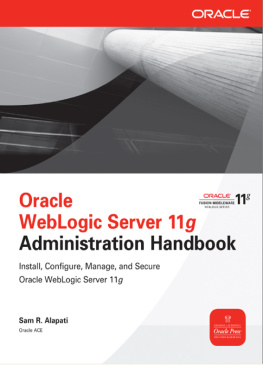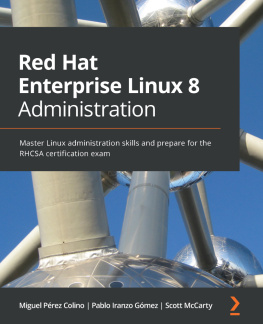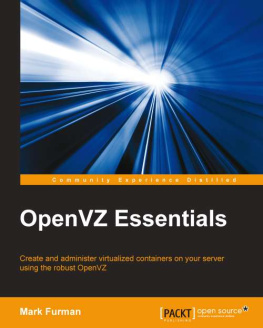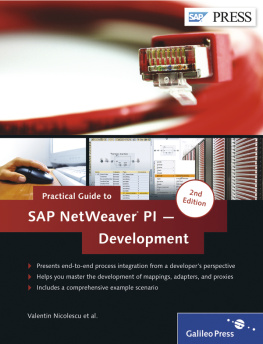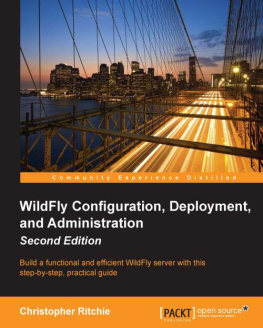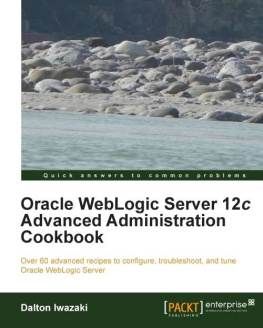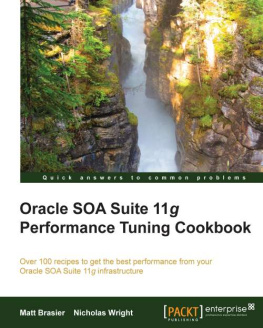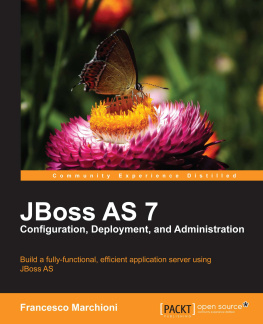Acknowledgments
I would like to thank my mother, Neeraja Devi Mereddy, and father, Satyanarayana Reddy Mereddy, for making all the sacrifices and sending me to great schools. I would like to thank all of my teachers at St. Pauls High School, Hyderabad, India, for providing me with an excellent education. I would not have been in a position to conceive and write a book without the sacrifices of my parents and patience of my teachers in providing me with a sound education.
I would like to thank McGraw-Hill Professional Editorial Director Wendy Rinaldi for sponsoring this book and Acquisitions Coordinator Stephanie Evans for guiding me through the initial writing and technical edits. I would also like to thank Senior Acquisitions Editor Lisa McClain for considering the initial book proposal and seeing the need for this book in the SAP education marketplace. I would like to thank Associate Acquisitions Editor Meghan Riley for guiding me through the initial chapters of the technical writing and edits. I would like to thank Project Manager Sandhya Gola, Editorial Supervisor Janet Walden, copy editor Lisa McCoy, and the entire production staff for helping with the publication process. This book would not have been possible without the financial and publishing support of McGraw-Hill Professional.
I would like to thank the technical editor, Raj Patel from IBM, for carefully reviewing the book chapters and offering suggestions to improve the quality of the book. His suggestions in the early chapters were particularly helpful in guiding the book in the right direction in terms of quality and content.
I would like to thank my daughter, Divya Mereddy, for putting up with my long periods of being at home during weekends but not available to help in school and homework activities. I would like to thank my wife, Srilekha Mereddy, for providing support while I was busy writing the book.
I would like to thank my sisters, Kavitha and Savitha, and my brother, Rajesh, for providing a safe and supporting environment growing up and helping me meet my educational and career goals. I would like to thank my brothers-in-law, Shekar Reddy and Uday Kumar Reddy, for helping me to come to the United States.
I would like to thank Dr. Kenneth E. Conway and Dr. Craig Liddell for providing advice, opportunities, and guidance for my career when I first came to the United States almost 20 years back.
I would like to thank my good friends, Prahalad Puranik, Srinath Devalapalli, Rakesh Kuruba, Vinod Raghavan, Vijayender Reddy, and PVS Ravi Kumar, for being positive influences in my career and life. I would like to thank my good friend and fellow SAP Basis colleague Sitapati Kalluri for countless deep technical discussions on SAP NetWeaver/Basis subject matter over the last 12 years. I would like to thank Philip Thilak for his friendship and deep Oracle database discussions in SAP environments. I would like to thank Prashant Nanga for giving me my initial break into SAP consulting. I would like to thank Prasad Rao and CyberTech International for providing my initial SAP training 12 years ago. I would like to thank Srinivas Garimella (Vasu) for encouraging me to go into SAP consulting.
I would like to thank Peter Van Avermaet for helping me to deepen my SAP basis skill during early part of my career. I would like to thank Srikanth Yelimati, Santhosh Jamandlamudi, Anand Kaliyamurthy, Raj Joshi, and Sunil Guditi, for checking in on me while writing this book.
Special thanks go to my neighborhood Starbucks!
APPENDIX SAP Basis Career Trends and NetWeaver Certification
I am writing this chapter from the vantage point of someone who has been working with SAP Basis/NetWeaver, technical architecture, and technology management for the last 12 years. Over the years I have been studying Basis/NetWeaver career trends and certification options closely so that I can reshape and adjust my own skill sets based on the evolving needs of the industry. One of the main goals of this appendix is to provide SAP Basis/NetWeaver career options for young professionals graduating from colleges and universities and also for experienced professionals who want to advance their careers. This chapter will cover a broad spectrum of issues faced by a prospective SAP Basis/NetWeaver professional as well as experienced professionals, such as what does a SAP Basis/NetWeaver and technical architecture career offer, why is it a valuable skill for the individual and for the organizations that hire them, how does one break into different career options, how does one get certified, what are the approaches for learning and developing the skill in depth, what career paths are available for Basis/NetWeaver professionals and how does one keep a balance between work and life. Hopefully, after reading this chapter, you will be better able to decide if SAP Basis/NetWeaver is a career choice for you or, if you are an experienced Basis/NetWeaver specialist, how to advance your career.
SAP Basis/NetWeaver Career
Over the years SAP Basis/NetWeaver administration and technical architecture have evolved into a highly specialized skill. It is no exaggeration to say that the skill has become so broad and deep that it is comparable to getting a specialized advanced degree in terms of getting the professional training and practical experience needed to excel in the job. Because of this specialization, professional training, and development it can be compared to other professional jobs, such as lawyers, doctors, and accountants. If you have to invest your time and energy into something that requires such a commitment, it only makes sense to understand what the job has to offer in return. The following sections will discuss the benefits available if you decide to pursue this as a career option. It will also cover what contribution a Basis role will deliver in an organization and discuss a typical day and week on the job.
Financial Stability
One of the reasons to pursue a professional career in SAP Basis/NetWeaver administration and architecture is that the job offers competitive salaries and a lot of financial stability compared to other IT jobs in the industry. Over the last 30 to 40 years SAP has established itself as one of the ERP standards for global organizations across the world. Most of the Fortune 500 companies, several small and medium-size businesses, federal and state government agencies, and private companies across the world use SAP as an ERP standard. Either they have already implemented the software or will be implementing and using it to run their businesses. Organizations invest a lot of financial resources into their corporate SAP systems and need a Basis/NetWeaver professional to architect, plan, build, test, deploy, and maintain the ERP application. Since the SAP application is mission-critical for conducting business transactions, organizations are willing to offer quite good compensation packages for Basis/NetWeaver professionals. In addition, this career path is stable and offers a lot of financial stability. A mid-level Basis/NetWeaver professional with three to four years experience can earn up to $100,000 a year. Senior SAP Basis professionals with 7 to 12 years of experience can earn a lot more. Please note that salaries vary upon the geographic region and as well as the size of the company, and several other factors, such as a full-time job versus an hourly contracting opportunity.
Career Growth Opportunities
Another reason to pursue the SAP Basis/NetWeaver career is the growth opportunities it can offer. SAP Basis/NetWeaver can provide rapid career growth working for a systems integrator or for a Fortune 500 company. It can open up doors for IT roles in the organization with much broader responsibilities. This will be discussed further in a later section of this chapter.



